
Ask Audi Australia why the Q5 has been such a success for the brand, and the answer will be that the medium SUV is its “Goldilocks model”.
Not too brash, not too bland, Audi believes the Q5 hits just the right balance between performance and practicality for many buyers. No surprise then that it’s one of its best sellers in Australia – trailing only its smaller Q3 sibling and only by a small margin – and pivotal to the brand’s success.
For 2025, the Q5 and sportier SQ5 enters their third generation, now riding on all-new underpinnings. Do the new Q5 stay true to the formula that’s made it a success so far?
Opening at $81,000 for the petrol-powered TFSI, the Q5 range ascends through diesel-powered TDI quattro ($87,600) and TDI quattro sport ($94,100).
Sportier SQ5 kicks off in an edition one trim for $106,400 with flagship SQ5 topping the line-up at $122,400.
At this price, the new Q5 undercuts major rivals, the BMW X3 ($84,500) and Mercedes-Benz GLC200 ($89,000). All prices quoted are before on-roads.
Both Q5 and SQ5 are covered by five-year, unlimited-kilometre warranties. Up to two additional two-year warranty periods can be purchased (up to a total of nine) for owners looking to extend their vehicle’s coverage even further.
Five-year service packages (covering five services at a yearly interval) are also available, with the Q5’s ringing up $3520, and the SQ5’s coming in at $3560.
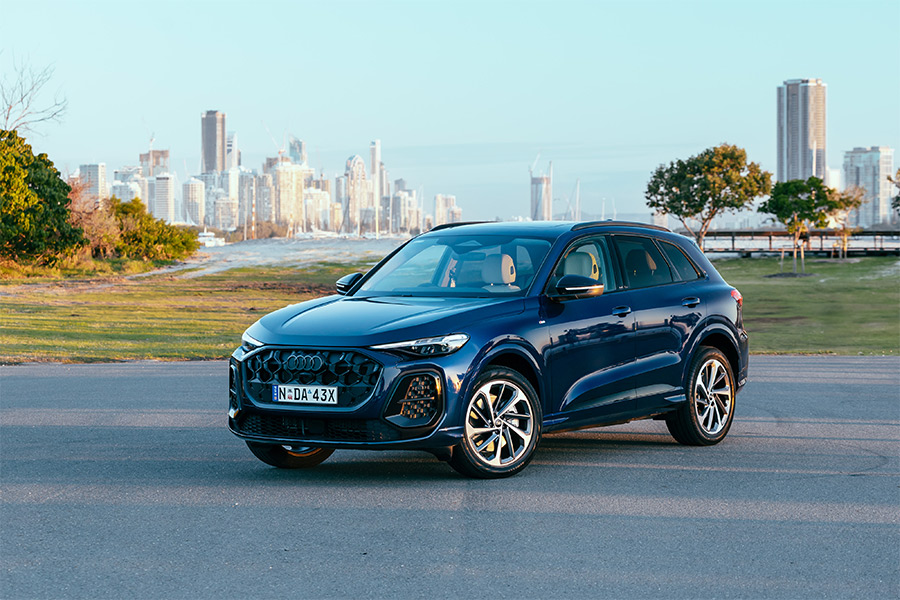
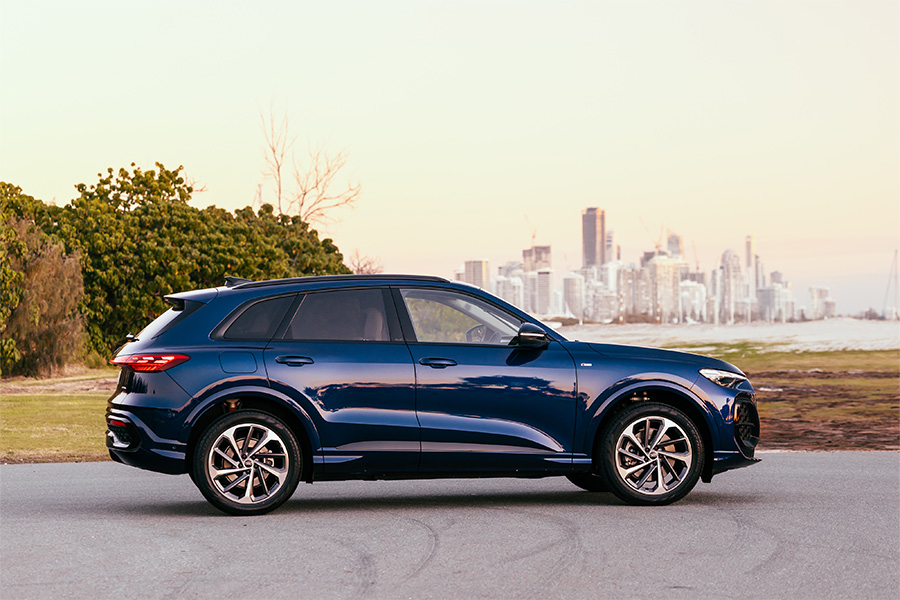
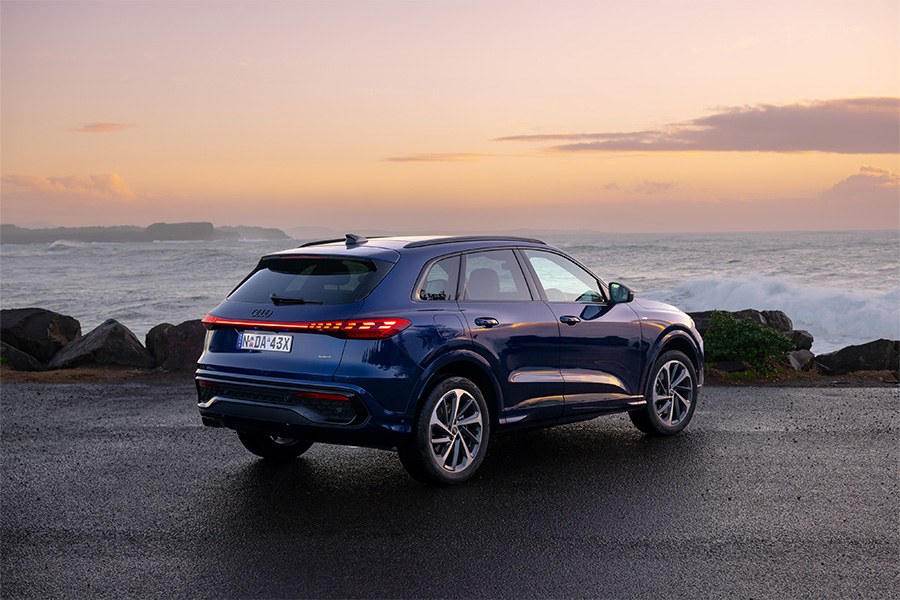
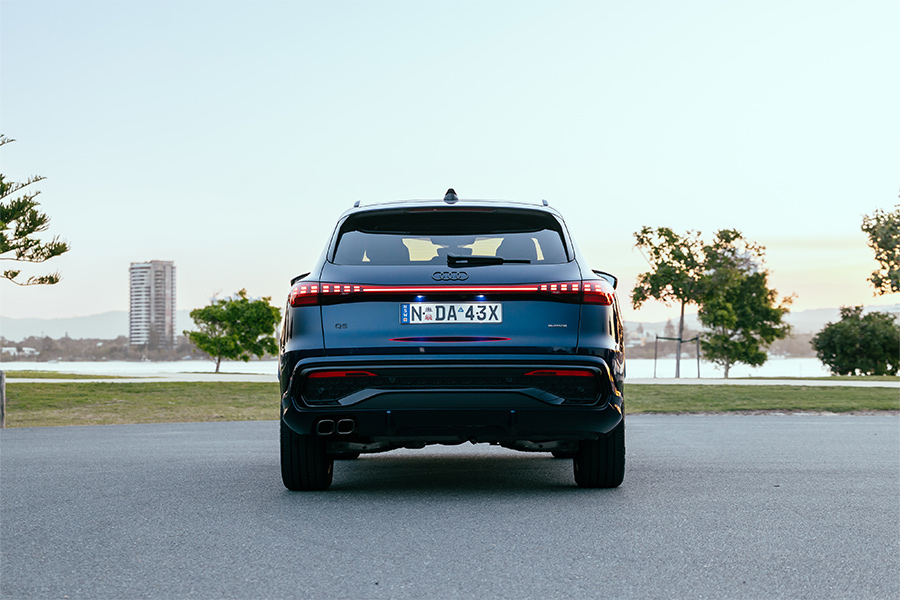
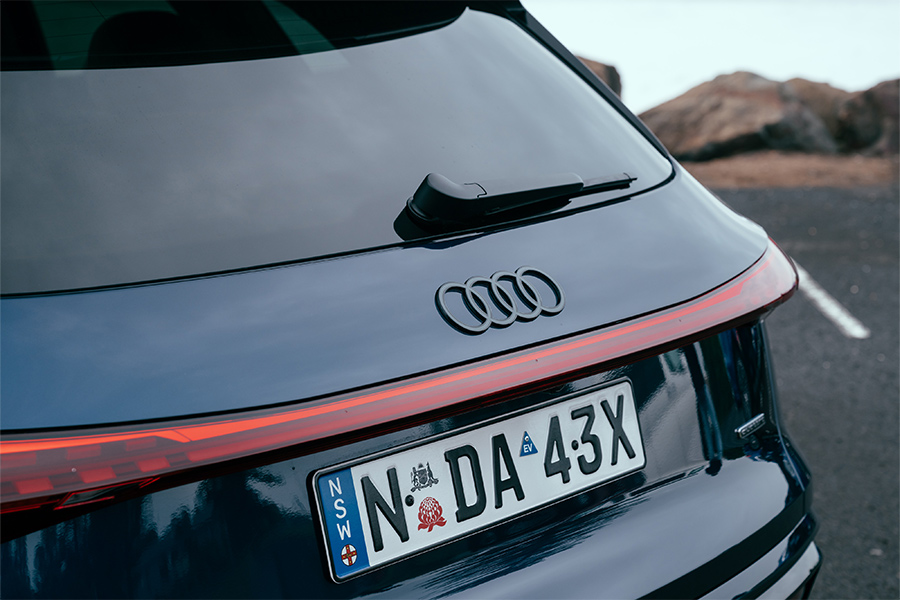
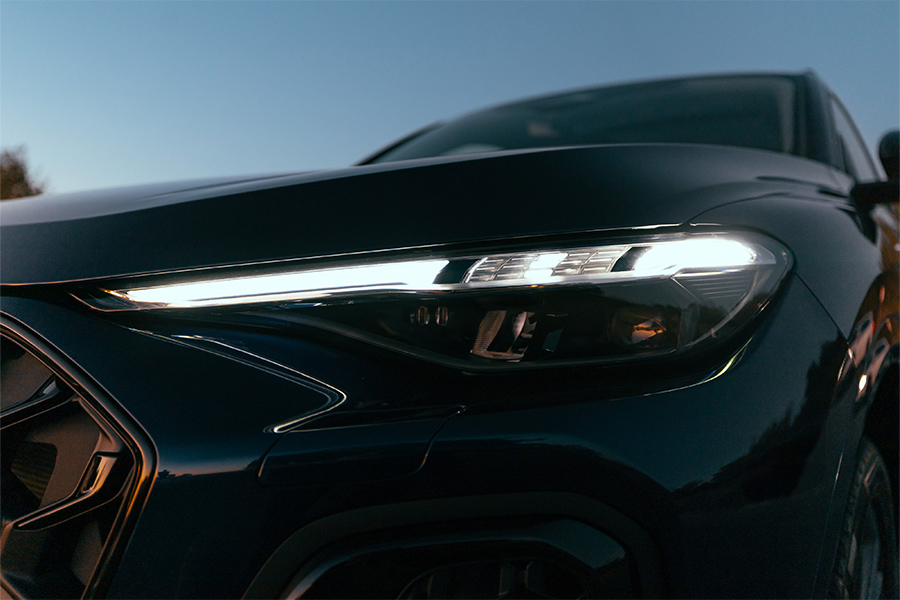
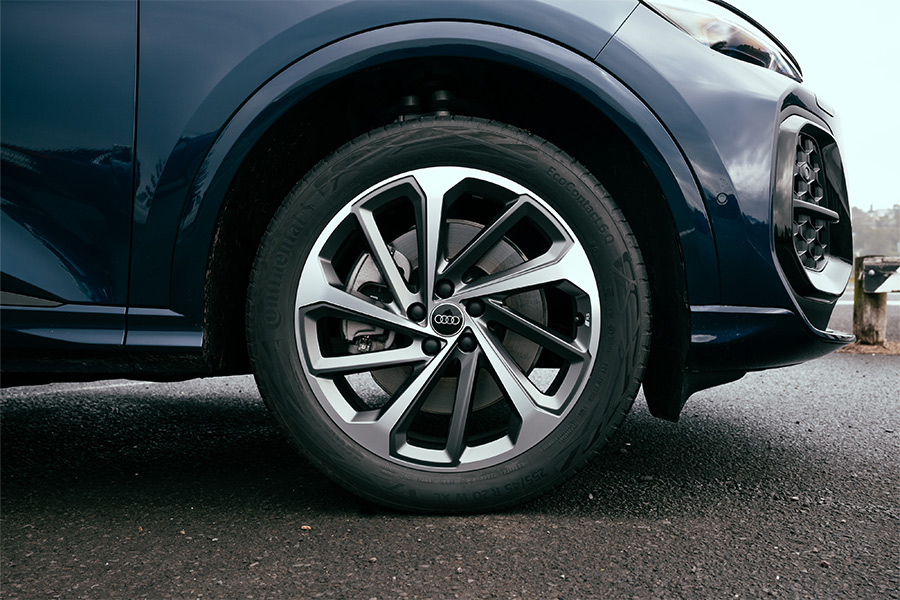
Entering a new generation, the 2025 Q5 and SQ5 feel aptly modern inside. Central to this is what Audi calls its ‘Digital Stage’ – a multi-screen setup that takes up much of the dash’s real estate, as we saw earlier this year at the launch of the Q6 e-tron.
Comprised of super crisp OLED 11.9-inch driver, 14.5-inch centre and (optional) 10.9-inch passenger displays, the screens run Audi’s MMI system, with native apps including maps and Android Auto/Apple CarPlay. The new driver display has also received added functionality of running map apps in a section of its screen.
Climate and some other windows can be customised by drivers, allowing their most-used features and settings to be surfaced. Audi says the Q5’s interior is human-centric, and this high level of customisation on-screen does play into the claim. The menus are intuitive to use, but with the level of information accessible, do require some familiarity with icons.
Elsewhere, the Q5 retains a good mix of physical buttons to offset these large screens. Steering wheel controls, drive mode selector, mirror and seat controls all remain physical buttons.
Leather appointment, brushed aluminium and soft-touch materials feature generously across four interior colour palettes. Seats are comfortable over long hauls both front and rear, but we did gripe with some less-than-perfect driver ergonomics decisions Audi has made – more on them later.
Rear row space is a tad lacking, with much of the row’s 100mm of slide needing to be utilised to achieve good legroom. Perhaps a necessary engineering consideration for upcoming Sportback variants (with their more sloped, coupe-like rooflines), but still disappointing in a next-gen car.
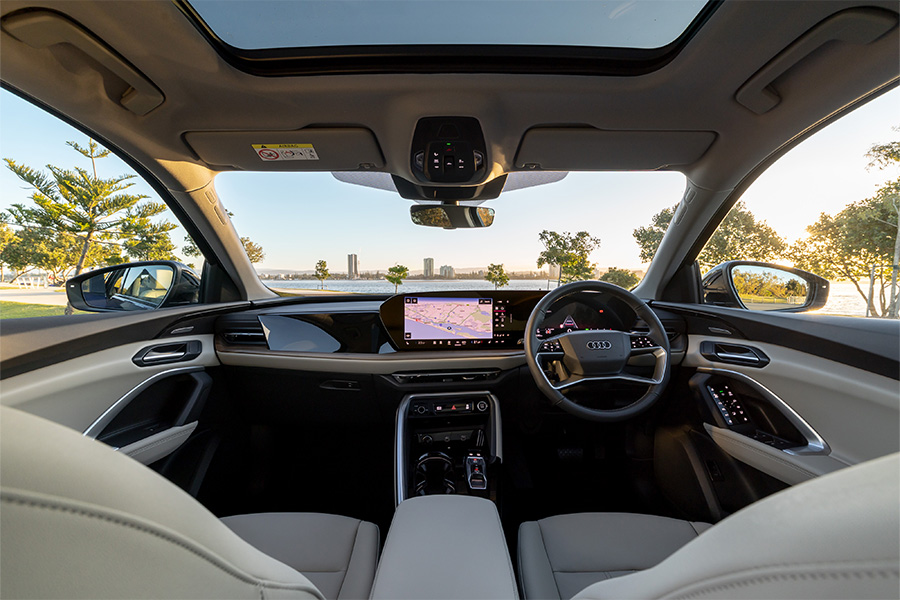
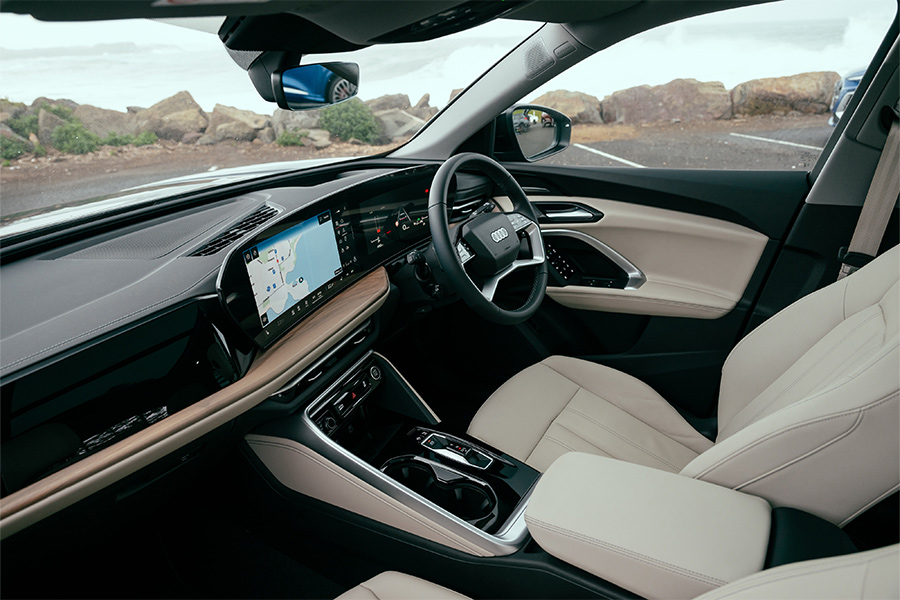
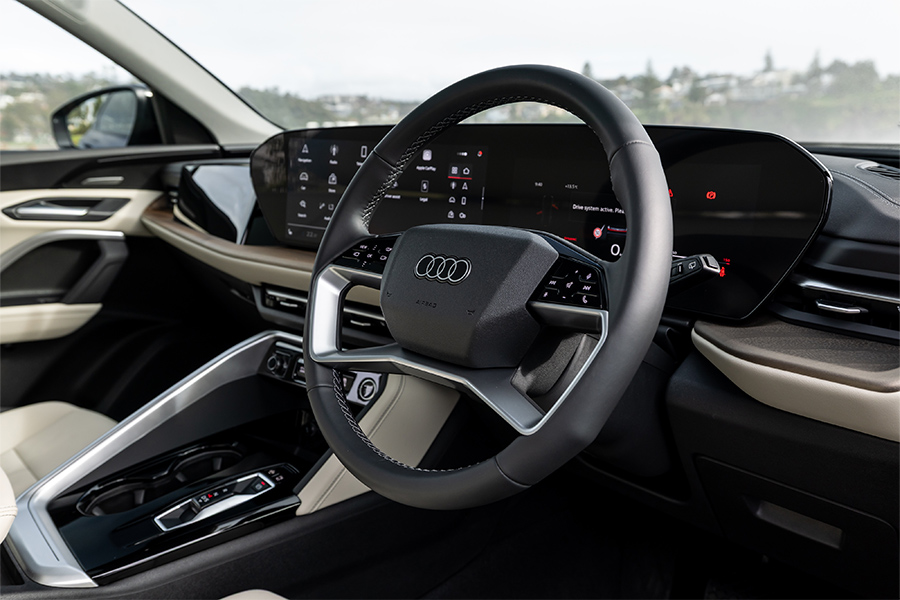
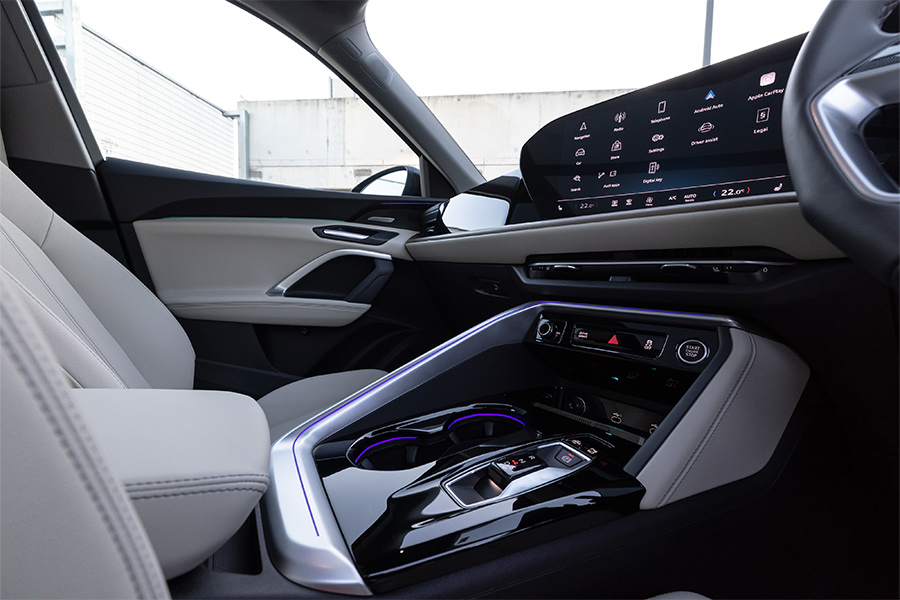
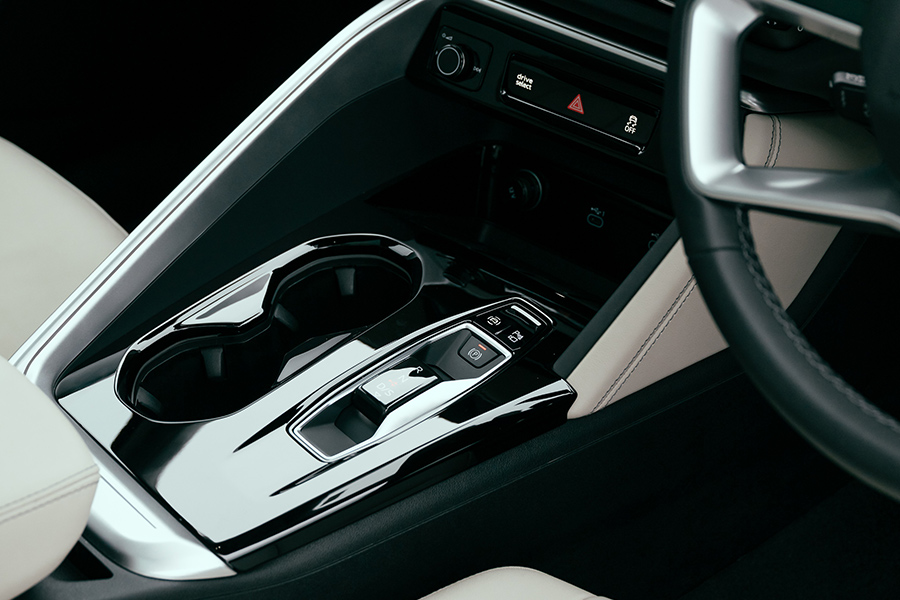
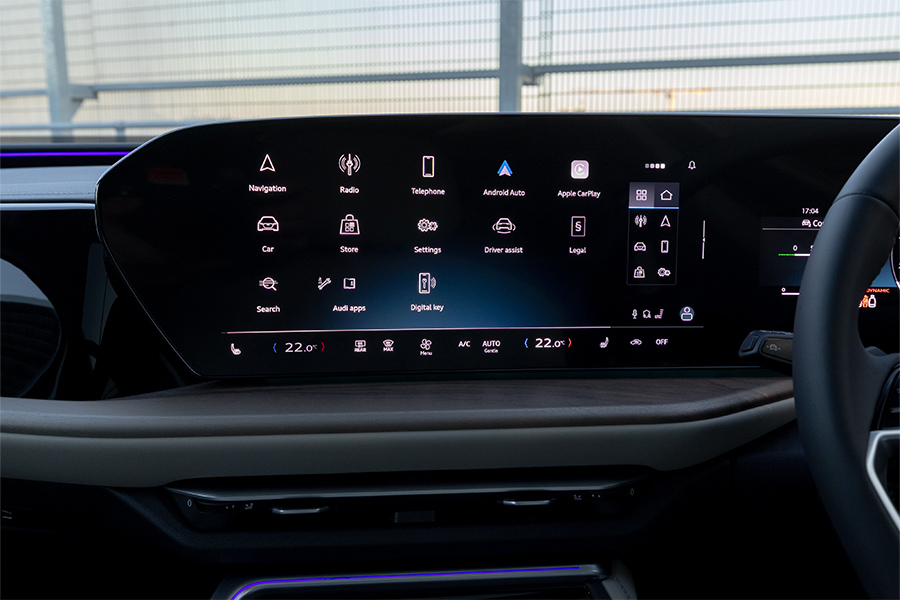
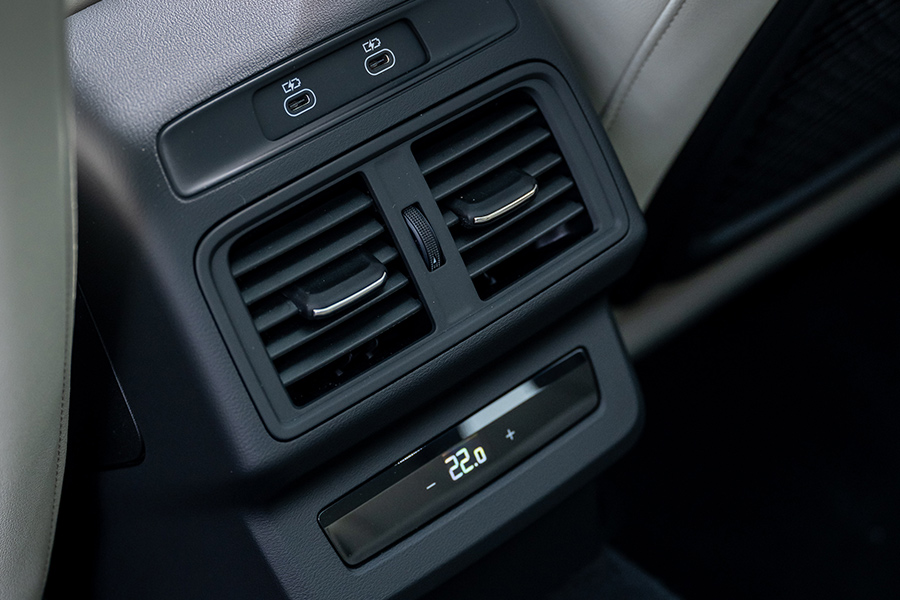
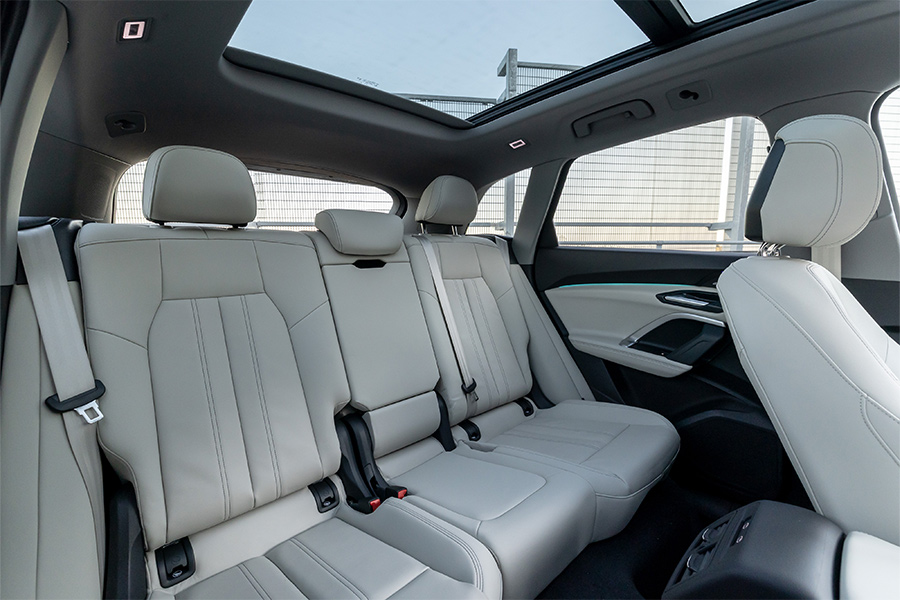
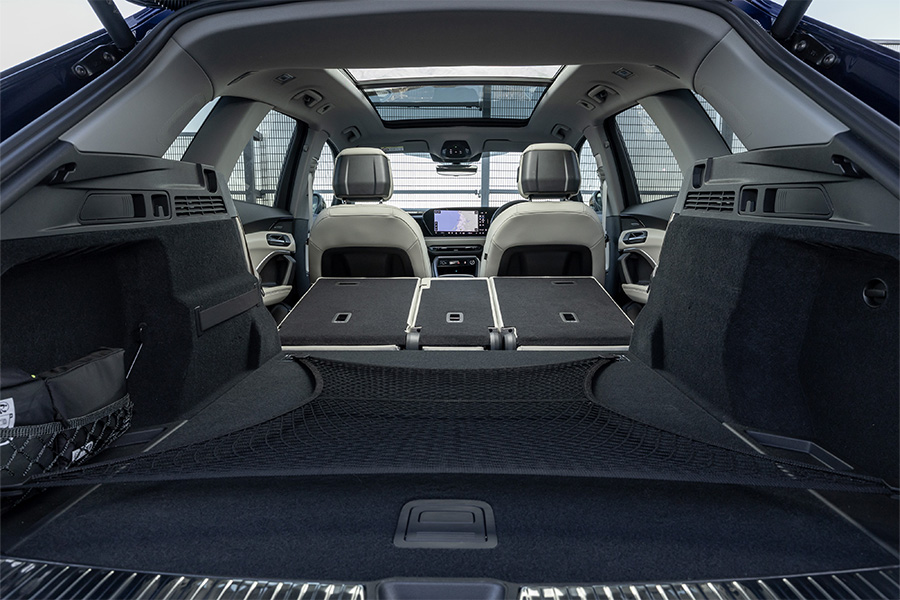
— Liam Murphy
Standard inclusions for the 2025 Q5 have grown, with Audi Australia saying much of its previous buying base were “optioning up” their cars anyway. More than $10,000 of additional standard equipment has now been added even in base trims, according to the brand.
Standard-fit equipment for TFSI and TDI quattro now includes 19-inch alloys, S line exterior trimmings, matrix LED headlights, a rear projection light for LED taillights, the move to OLED for driver and now-larger centre screens, a higher wattage eight-speaker sound system and adaptive cooling for wireless phone charging.
Auto dimming mirrors with memory, contrast interior stitching, brushed aluminium inlays, slide and recline added to rear row seats and four-way adjustability for front headrests round have also been added.
Moving to TDI quattro sport gains 20-inch alloys, an openable panoramic sunroof with electric sunshade, sport front seats and S line interior which includes S embossing on front seats, a sportier three-spoke steering wheel, anthracite detailing on aluminium inlays, stainless steel pedals and black headlining.
SQ5 edition ones score black metallic 20-inch alloys, sports suspension, red brake callipers, privacy glass and an exterior package that blacks out a single frame grille, bumper trims front and rear, window and lower door trims, roof rails, side mirror covers, muffler tips and Audi badges.
Flagship SQ5 sees a plethora of additional standard kit. Metallic paint, 21-inch alloy wheels, aluminium-look exterior trimmings, acoustic glass for front side windows and premium diamond-stitched leather upholstery with accenting elsewhere in Dinamica material feature.

2025 Audi SQ5 interior
Front seats gain ventilation and massage while drivers gain a head-up display and an ‘interior dynamic interaction light’ – an LED strip placed underneath the windshield designed to subtly alert drivers of hazards. Remaining occupants score an uprated 16-speaker Bang & Olufsen sound system and higher output USB-C ports (60 watts up front, and 100 watts in the rear).
A Premium package ($5400) adds head-up display, a Bang & Olufsen 3D sound system, the dynamic interaction light, those higher output USB ports and the acoustic glass up front. The Tech pro package ($5700) installs a heated steering wheel, the front passenger screen, electric adjustability for the steering wheel, heating to outboard rear seats and digital OLED taillights.
Fitting the Style package ($3400 to 4900 depending on variant) includes 20-inch sport alloys wheels, a black exterior package and privacy glass.
At the time of writing, the 2025 Audi Q5 was unrated by ANCAP. It has, however, scored five stars through Euro NCAP, with scores of 85 per cent for Adult Occupant, 86 per cent for Child Occupant, 79 per cent for Vulnerable Road User, and 77 per cent for Safety Assist categories.
Unrated ANCAP status aside, Audi is a brand celebrated for safety, and among its beefed-up standard inclusions for 2025, the Q5 scores even more safety kit on base trims.
A 360-degree camera with parking assist, speed sign recognition and an increase to nine airbags (including a front centre) all join an existing suite of 30 safety and assistance systems.
Q5 buyers have a choice of 2.0-litre turbocharged four-cylinder engines burning either petrol or diesel.
Petrol-powered TFSI trim sends 150kW and 340Nm to the front wheels through a seven-speed dual-clutch transmission (DCT).
Diesel units fitted to TDI quattro and TDI quattro sport drive all four wheels through a Audi’s famous quattro all-wheel-drive system, outputting 150kW and 400Nm through a seven-speed DCT as well.
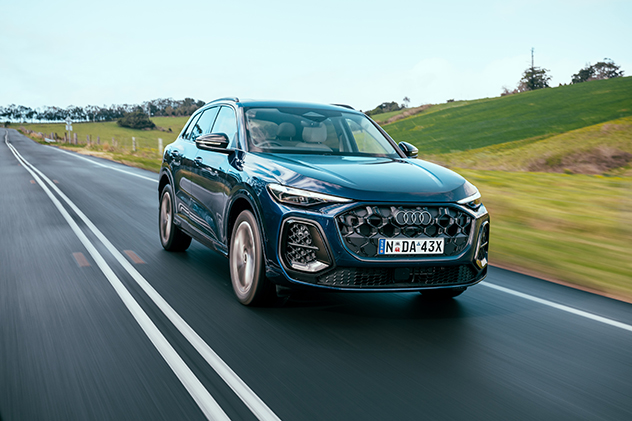
Moving to SQ5 scores a 3.0-litre turbocharged V6 capable of producing 270kW and 550Nm. All SQ5s score Audi’s quattro all-wheel-drive system.
A 48-volt mild hybrid electric vehicle (MHEV) system is fitted to all engines, pairs a 1.7kWh battery pack with a single electric motor mounted to the driveshaft after the gearbox.
A relatively high (for the battery capacity) recharge rate of 25kW is seen across the board, allowing the system to do up to 18kW and 230Nm of heavy lifting – quite a lot for a MHEV and leading to Audi naming the system ‘MHEV plus’.
The fuel consumption benefits seem to be material, with Audi claiming just 5.7, 5.4 and 7.6 litres per 100km for the Q5 TFSI, Q5 TDI quattro and SQ5 respectively.
Out on the road, the 2025 Audi Q5 ticks the boxes it should for a car in its segment produced by a legacy marque.
The ride is a tad firm but overall compliant and comfortable, thanks in no small part to Audi’s move to a frequency selective damper, which passively adjusts to road conditions. Cabin comfort overall is excellent, with just enough stimuli from the outside world reaching occupants.
The handling is a bit of an enigma, with the steering ratio (how much you need to rotate the steering wheel for the front wheels to turn) very quick compared to how apathetically the Q5’s chassis wants to turn in. Add to this a heavy steering – with an unnecessarily aggressive return-to-centre – and the Q5 proved to be a bit tricky to drive smoothly at city speeds.
Ergonomically, even after hours behind the wheel, we just couldn’t get along with the Q5. Fundamentals that Audi should (and previously) have gotten right before seem to have been forgotten in this new platform.
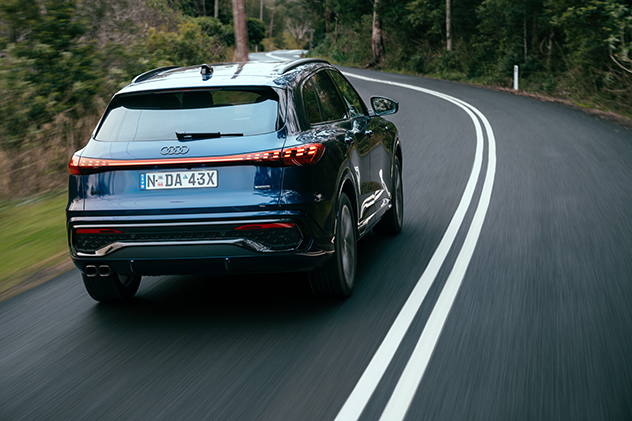
Our largest gripe was the brake pedal position. Placed right up against the throttle pedal, however about 50mm higher, means we felt we needed a different seat position depending on whether we were speeding up or slowing down. The steering wheel also felt too forward-tilted and requiring a bend in the wrist, which was emphasised by the heavy steering mentioned above.
All three engines pull well when asked to, but the MHEV experience differs depending on the powerplant to which it’s bolted. No surprise here that the engines with more torque (the SQ5’s V6 and TDI’s diesel) feel smoother during take-off and the transition from electric to combustion power.
Between the MHEV ‘carrying’ it for a tad too long, and some lethargic transmission mapping, the TFSI frustrated a few times at lower speeds. We also noted multiple clicks and taps from the system at lower speed which detracted from luxury felt elsewhere in the cabin.
Overall, however, the MHEV impressed and was hard to fault once up and moving, with the system flawlessly deploying and recouping its energy.
The 2025 Audi Q5 remains a bit of a bargain proposition against rivals in the premium mid-size SUV segment, however some refinement lacking in its handling and MHEV system feel commensurate.
More standard kit, great looks and a renewed focus on occupant comfort should keep it at the top of shopping lists for many buyers. The Q5 and SQ5 formula has proven successful for Audi, and the third-gen 2025 Q5 and SQ5 hit the mark enough to keep the tradition going.